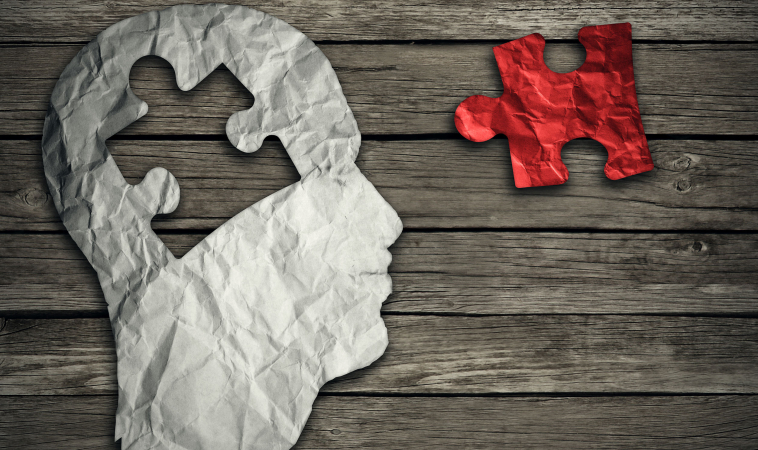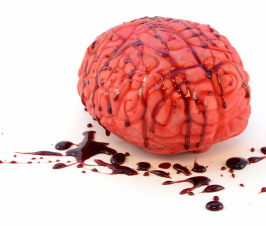New Edith Cowan University (ECU) research has found that intensive therapy is not necessarily best when it comes to treating the loss of language and communication in early recovery after a stroke.
Intensive therapy is not necessarily best when it comes to treating the loss of language after a stroke
Published today in the International Journal of Stroke, the research found that unlike physical and motor skill rehabilitation, recovering lost language caused by a condition known as aphasia after stroke is a marathon, not a sprint. It also showed that early intervention is crucial.
Lead author, Associate Professor Erin Godecke from ECU’s School of Medical and Health Sciences, said the findings have important implications for the treatment of aphasia because they mean service delivery options are likely to change.
“Previously people with aphasia got the majority of their therapy in the first 6-8 weeks after stroke,” Professor Godecke said.
“Our research shows that there is no benefit to this. It is likely that the same therapy could be spread over a longer period to enhance recovery, rather than getting a burst at the start and very little over the next months or years,” she said.
Aphasia is a neurological disorder affecting spoken language, comprehension, reading and writing. It affects one third of around 17 million people worldwide who experience stroke each year and is treated with speech therapy.
Early care is vital, but not intensity
Professor Godecke said aphasia therapy and early intervention are vitally important for recovery outcomes after stroke. However, increasing the intensity of the treatment doesn’t equate to better results.
“We found that when we provided early aphasia therapy people had a massive increase in their ability to communicate at 12 and 26 weeks after their stroke. They could talk better and had less difficulty finding and using the right words.
“Importantly though, we also found that if we provided around 10 hours of therapy per week versus nearly 23 hours a week the results weren’t any different. We didn’t see any harm, but we didn’t see any benefit,” Professor Godecke said.
Language recovery is different to motor recovery
Professor Godecke said the way people recover motor skills after a stroke is different to how they regain language.
“We tend to believe that more intensive is always better. However, we’re beginning to see data emerge to show us that language recovery might behave a little differently to motor recovery functions such as walking, moving your arm or sitting up,” she said.
“We don’t need quite as intensive a regimen for language as we do for walking recovery. We might need the same amount of treatment, just spread over a longer period.”
Professor Godecke said the difficulty level, or intensity, of the aphasia therapy needs to be tailored to what the person can tolerate.
“Because language is a higher order function and it involves more thinking time and cognitive skill, having breaks between sessions may help consolidate learning,” Professor Godecke said.
“It’s akin to running on a treadmill — you can only run on the treadmill if you can walk.
“There’s no benefit having someone run at full speed when you can have them run at a moderate pace, get the learning they need, retain it for longer and build on it,” she said.
VERSE study
The Very Early Rehabilitation for Speech (VERSE) study at ECU is the first international aphasia trial. The study aimed to determine whether intensive aphasia therapy, beginning within 14 days after stroke, improved communication recovery compared to usual care.
Researchers recruited 246 participants with aphasia after stroke from 17 acute-care hospitals across Australia and New Zealand. Participants either received the usual level of aphasia therapy, or one of two higher intensity regimens.
The ECU study found early intensive aphasia therapy did not improve communication recovery within 12 weeks post stroke compared to usual care.
1. Erin Godecke, Elizabeth Armstrong, Tapan Rai, Miranda Rose, Natalie Ciccone, Sandy Middleton, Anne Whitworth, Audrey Holland, Fiona Ellery, Graeme J Hankey, Dominique A Cadilhac, Julie Bernhardt. A Randomised Controlled Trial of Intensive Aphasia Therapy after Acute Stroke: The Very Early Rehabilitation for Speech (Verse) Study. SSRN Electronic Journal, 2018; DOI: 10.2139/ssrn.3251502

Razi Berry is the founder and publisher of the journal Naturopathic Doctor News & Review, which has been in print since 2005, and the premier consumer-faced website of naturopathic medicine, NaturalPath. She is the host of The Love is Medicine Project docuseries, The Natural Cancer Prevention Summit, The Heart Revolution-Heal, Empower and Follow Your Heart, and the popular 10-week Sugar Free Summer program. From a near death experience as a young girl that healed her failing heart, to later overcoming infertility and chronic fatigue syndrome and fibromyalgia through naturopathic medicine, Razi has lived the mind/body healing paradigm. Her projects uniquely capture the tradition and philosophy of naturopathy: The healing power of nature, the vital life force in every living thing and the undeniable role that science and mind/body medicine have in creating health and overcoming dis-ease. You can follow Razi on social media: Facebook at Razi Berry, Instagram at Razi.Berry and join the Love is Medicine group to explore the convergence of love and health. Look for more, and listen to more Love is Medicine podcast episodes here.

















